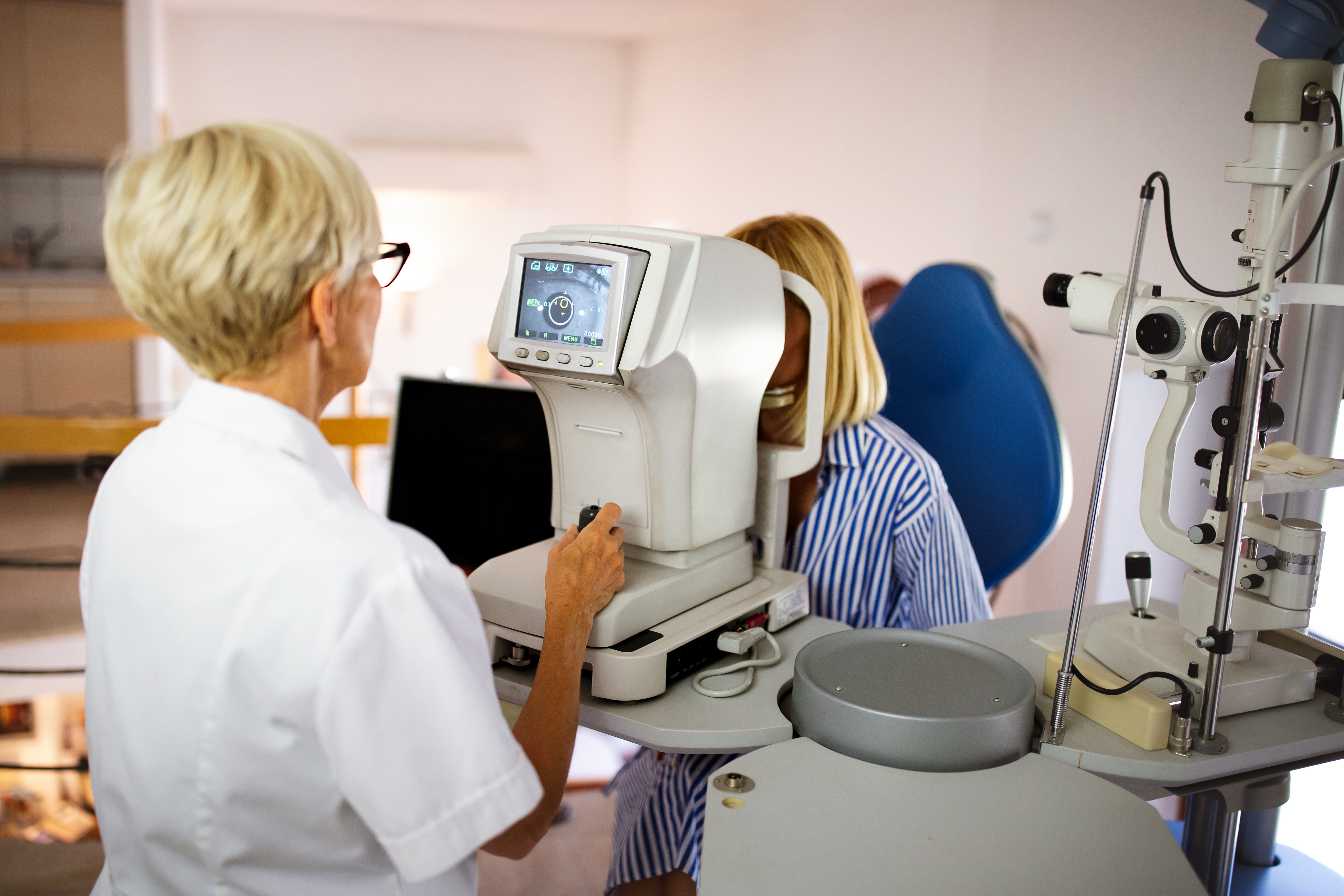Hidden Red Flags: Early Warning Signs Your Liver Might Be Under Stress
Fatigue? Skin changes? Digestive weirdness? They might all trace back to your liver. That’s why we’ve expanded our guide of critical clues that your liver is in distress—early warnings that something deeper could be going on. The sooner you catch these signs, the easier it is to intervene before things escalate. This isn’t about panic—it’s about awareness. Because when your liver struggles, your entire system feels the strain. And when it thrives, everything runs smoother. Let’s decode the signs—and give your liver the support it’s quietly asking for.
1. Persistent Fatigue: The Unseen Energy Drain

Fatigue is a common complaint, often dismissed as a consequence of a busy lifestyle. However, when tiredness becomes chronic and unrelenting, it may indicate liver dysfunction. The liver is responsible for breaking down toxins and converting nutrients into energy. When compromised, its efficiency diminishes, leading to an accumulation of toxins and a resultant energy deficit. This persistent fatigue is not merely physical but can also affect cognitive functions, making concentration and mental clarity challenging. Recognizing this symptom as a potential sign of liver distress is crucial, prompting further investigation and lifestyle adjustments to alleviate the burden on the liver.
2. Jaundice: The Yellow Warning Light

Jaundice, characterized by a yellowing of the skin and eyes, is a classic indicator of liver trouble. It occurs when bilirubin, a byproduct of red blood cell breakdown, accumulates in the body due to the liver's inability to process it efficiently. This symptom is often one of the more visible signs of liver distress, signaling conditions such as hepatitis, cirrhosis, or bile duct obstruction. While jaundice is alarming, it serves as a critical clue that immediate medical evaluation is necessary. Understanding the underlying causes of jaundice can help in diagnosing the specific liver condition and initiating appropriate treatment strategies.
3. Abdominal Pain and Swelling: The Internal Alarm

Abdominal discomfort, particularly in the upper right quadrant, can be a telltale sign of liver issues. This pain may result from liver inflammation, enlargement, or even the presence of liver cysts or tumors. Additionally, fluid accumulation in the abdomen, known as ascites, can cause noticeable swelling and is often associated with advanced liver disease. These symptoms, though sometimes subtle, should not be ignored as they indicate that the liver is struggling to perform its essential functions. A thorough medical assessment can help determine the cause and severity of the issue, guiding necessary interventions to alleviate the liver's distress.
4. Dark Urine and Pale Stools: The Color Code

Changes in urine and stool color can provide vital clues about liver health. Dark urine, often described as tea-colored, and pale or clay-colored stools suggest that bile flow is disrupted. Bile, produced by the liver, is essential for digestion and the elimination of bilirubin from the body. When bile ducts are obstructed or liver cells are damaged, bilirubin spills into the bloodstream, altering the color of urine and stools. These changes are significant indicators of liver dysfunction and warrant further investigation to identify the underlying cause, which could range from gallstones to liver disease.
5. Itchy Skin: The Persistent Irritation

Chronic itching, or pruritus, can be an unexpected indicator of liver problems. This symptom arises from the accumulation of bile salts in the bloodstream due to impaired liver function. Unlike typical itchiness, liver-related pruritus is often persistent and widespread, affecting the entire body. It can significantly impact quality of life, leading to sleep disturbances and emotional distress. Addressing this symptom involves not only treating the itch but also identifying and managing the underlying liver condition. By doing so, the root cause of the itch can be alleviated, providing relief and improving overall health.
6. Nausea and Vomiting: The Digestive Disturbance

Nausea and vomiting are common symptoms of various conditions, but when persistent, they may signal liver distress. The liver plays a crucial role in digestion, producing bile necessary for fat absorption. When liver function is impaired, digestive processes are disrupted, leading to gastrointestinal symptoms such as nausea and vomiting. These symptoms can also result from the accumulation of toxins that the liver fails to filter out. Understanding this connection can prompt individuals to seek medical advice, ensuring that liver function tests are conducted to determine the cause and extent of liver involvement.
7. Bruising and Bleeding: The Clotting Conundrum

The liver is integral to the production of proteins necessary for blood clotting. When liver function is compromised, the synthesis of these proteins is impaired, leading to easy bruising and prolonged bleeding. This symptom is often overlooked but serves as a crucial clue to underlying liver issues. It is particularly concerning in advanced liver disease, where clotting factors are significantly reduced. Recognizing this sign can lead to early intervention, preventing complications such as excessive bleeding during injuries or surgeries. Medical evaluation and appropriate treatment can help restore clotting function and improve liver health.
8. Swollen Legs and Ankles: The Fluid Imbalance

Swelling in the legs and ankles, known as edema, can be an indicator of liver dysfunction. This occurs when the liver's ability to produce albumin, a protein that regulates fluid balance, is compromised. As albumin levels drop, fluid leaks into tissues, causing noticeable swelling. This symptom is often associated with cirrhosis, a condition where healthy liver tissue is replaced by scar tissue. Addressing the underlying liver condition is essential to managing edema, as it not only alleviates discomfort but also prevents further complications associated with fluid retention.
9. Loss of Appetite and Weight Loss: The Nutritional Red Flag

A sudden loss of appetite and unexplained weight loss can be alarming signs of liver distress. The liver is central to metabolism and nutrient processing; when its function is impaired, these processes are disrupted. This can lead to a decreased interest in food and subsequent weight loss. Additionally, liver dysfunction can alter taste perception, further contributing to reduced food intake. Recognizing these symptoms as potential indicators of liver issues is crucial, as they often precede more severe complications. Early intervention can help restore appetite and nutritional status, supporting overall health and liver recovery.
10. Confusion and Cognitive Issues: The Brain-Liver Connection

Cognitive symptoms such as confusion, memory lapses, and difficulty concentrating can be linked to liver dysfunction, particularly in conditions like hepatic encephalopathy. This occurs when toxins, especially ammonia, accumulate in the bloodstream due to impaired liver function and affect brain activity. These cognitive changes can be subtle initially but may progress to more severe neurological symptoms if left untreated. Understanding the brain-liver connection is vital for recognizing these symptoms as potential signs of liver distress. Prompt medical evaluation and treatment can prevent further cognitive decline and improve quality of life.
11. Hormonal Imbalances: The Endocrine Disruption

The liver plays a significant role in hormone regulation, breaking down and clearing excess hormones from the bloodstream. When liver function is compromised, hormonal imbalances can occur, leading to symptoms such as menstrual irregularities in women and gynecomastia in men. These changes may be subtle but are crucial indicators of liver distress. Addressing the underlying liver condition can help restore hormonal balance, alleviating associated symptoms. This highlights the interconnected nature of bodily systems and the liver's central role in maintaining endocrine health.
12. Bad Breath and Body Odor: The Olfactory Indicators

Unpleasant breath and body odor can be surprising indicators of liver issues. When the liver is unable to effectively process toxins, they can be excreted through breath and sweat, resulting in a distinct smell often described as "musty" or "sweet." This symptom, while less commonly recognized, provides a valuable clue to liver health. Understanding the connection between liver function and olfactory changes can prompt individuals to seek medical evaluation, ensuring that liver function tests are conducted to identify and address the underlying cause.
13. Emotional Changes: The Mood-Liver Link

Emotional and psychological changes, such as mood swings, depression, and anxiety, can be linked to liver dysfunction. The liver's role in detoxification extends to the processing of neurotransmitters, chemicals that influence mood and mental health. When liver function is impaired, imbalances in neurotransmitter levels can occur, leading to emotional disturbances. Recognizing these changes as potential indicators of liver issues is crucial, as addressing the underlying liver condition can help restore emotional balance and improve mental well-being. This connection underscores the liver's influence on both physical and psychological health.
14. Spider Veins or Red Palms: Skin Deep Signals

Your skin can be a mirror for liver health. The appearance of spider angiomas—tiny, web-like clusters of dilated blood vessels—or persistently red palms (palmar erythema) can signal impaired liver function. These changes occur due to altered hormone metabolism, especially estrogen, which the liver usually regulates. When the liver is compromised, hormone levels can spike and trigger vascular changes just under the skin. While often dismissed as cosmetic or unrelated, these signs may precede more severe symptoms. If you notice persistent redness or visible vein patterns, it may be your skin's subtle way of flagging deeper liver dysfunction.
15. Bitter Taste in the Mouth (Especially in the Morning)

A persistent bitter taste in the mouth, particularly noticeable in the morning, can point to sluggish liver or bile duct issues. In traditional Chinese and Ayurvedic medicine, this symptom has long been associated with liver imbalance. When bile flow is impaired—due to inflammation, congestion, or fatty liver—small amounts can reflux into the digestive tract and mouth, leaving behind a bitter, metallic aftertaste. While not alarming on its own, if this sensation becomes regular or is paired with digestive discomfort, it may be time to evaluate your liver health. Your taste buds might be sounding the alarm before other systems catch up.
16. Sensitivity to Smells or Medications

If you've suddenly become sensitive to perfumes, cleaning products, or medications you once tolerated well, your liver might be overwhelmed. As your body’s primary detox organ, the liver breaks down and neutralizes chemicals, drugs, and environmental toxins. When it's under strain, this detoxification process slows, causing substances to linger in your system—and making you more reactive to smells, alcohol, or pharmaceuticals. This hypersensitivity can show up as nausea, headaches, or skin flare-ups. It’s your body's subtle way of saying: the detox queue is backed up. Listening early can prevent much larger disruptions later.
17. Morning Nausea Without Cause

Feeling queasy in the morning even when you haven’t eaten poorly or indulged the night before? That unexplained nausea could stem from liver dysfunction. Overnight, your liver works hardest to detoxify the body. If it's struggling—due to congestion, fatty buildup, or inflammation—you may wake up feeling slightly toxic. The result? A vague, nagging nausea with no obvious trigger. This often overlaps with sluggish digestion, poor bile flow, or low-grade toxicity from inefficient waste clearance. While it may seem minor, regular morning nausea without cause is worth investigating—especially when paired with other signs of liver strain.
18. Frequent Headaches or Pressure Around the Eyes

Recurring headaches—especially dull, pressure-like ones centered around the temples or behind the eyes—can be a subtle sign of liver overload. Traditional systems of medicine have long linked the liver to the eyes and head. Modern explanations suggest that when detox pathways are sluggish, inflammatory byproducts may circulate longer, triggering headaches or head tension. Some people also experience visual disturbances or light sensitivity alongside these symptoms. If you're popping painkillers regularly without clear cause, it may be time to look inward—literally. Your liver might be overburdened, asking for support through your forehead’s steady throb.
19. Unexplained Blood Sugar Fluctuations

The liver is the master regulator of your body’s blood sugar. It stores glucose as glycogen and releases it when needed, and it plays a key role in insulin sensitivity. When the liver is under stress, this precise regulation can falter, leading to unexplained blood sugar fluctuations that aren't a result of diet or medication. You might experience sudden energy crashes, intense cravings, or lightheadedness, even if you are not diabetic. These subtle signs are your liver’s way of signaling that its metabolic workload is too heavy and its ability to maintain balance is compromised.
20. Insomnia and Altered Sleep Cycles

If you're struggling with persistent insomnia or your sleep-wake cycle feels off, it could be tied to your liver. The liver is most active during the night, performing critical detoxification and repair functions. When it’s struggling, this process can be disrupted, impacting your sleep quality and even your circadian rhythm. You may find yourself waking frequently between 1 a.m. and 3 a.m. or have a hard time falling asleep. This sleep disturbance is your body's nocturnal clue that its master detox organ is struggling to keep up with its job.
21. Chronic Joint and Muscle Pain

Chronic, unexplained joint and muscle pain that isn't related to injury or overexertion can be a subtle sign of liver dysfunction. When the liver is unable to filter toxins and inflammatory compounds from your blood efficiently, these substances can circulate and accumulate in your joints and muscles, triggering pain and inflammation. This can feel like a generalized body ache, stiffness, or pain that is often misdiagnosed as fibromyalgia or arthritis. This persistent discomfort is your body’s way of sounding a systemic alarm about an overburdened detox system.
22. Bloating and Feeling Full Quickly

If you experience persistent bloating or a feeling of being full after eating only a small amount of food, it could be a less obvious sign of liver trouble. The liver plays a critical role in producing bile, which is essential for digesting fats. When liver function is sluggish, bile production can be inadequate, leading to poor fat digestion and a heavy, bloated feeling. This symptom can also be caused by fluid retention related to liver issues. Bloating is a physical cue that your digestive system is not working efficiently, and your liver may be the reason why.
23. Skin Pigmentation Changes

Beyond the classic yellowing of jaundice, a struggling liver can manifest as specific changes in skin pigmentation. Some individuals with liver issues develop dark, velvety patches of skin (acanthosis nigricans), especially in the folds of their neck, armpits, or groin. Other subtle signs include age spots, liver spots, or patches of discoloration that appear or worsen without sun exposure. These changes are a result of hormonal imbalances and insulin resistance that are often a consequence of poor liver function. These visible shifts are your skin’s way of quietly flagging a deeper internal imbalance.
24. Unexplained Anemia

If you have been diagnosed with anemia but the cause is not a simple iron deficiency, your liver may be the surprising culprit. The liver plays a key role in the production of red blood cells and in processing and storing iron. When the liver's function is compromised, it can lead to a decrease in red blood cell production, causing fatigue and weakness. Anemia that doesn't respond to iron supplementation is a significant red flag that warrants a deeper look into liver health. It’s a subtle sign that the liver's foundational role in blood health is being compromised.
25. Unexplained Gout Attacks

The liver plays a critical role in metabolizing purines, a compound found in many foods, into uric acid. When the liver is struggling, this process can be disrupted, leading to an excess of uric acid in the blood. This can trigger sudden and painful gout attacks, a condition often associated with a diet rich in red meat and alcohol. If you are experiencing unexplained gout attacks, it could be a sign that your liver is unable to perform its metabolic duties effectively. This connection highlights the liver’s influence on conditions far beyond traditional detox pathways.
26. Unexplained Low Libido

An often-unspoken symptom of a struggling liver is a significant drop in libido. The liver plays a crucial role in regulating hormones, including testosterone in both men and women, by breaking down and clearing excess hormones from the bloodstream. When liver function is compromised, hormonal imbalances can occur, directly impacting sexual desire. This is a subtle but important signal that the hormonal balance of your body is compromised. Addressing the underlying liver issue often helps restore hormone levels, which can lead to a natural return of sex drive and overall vitality.
27. Changes in Urination

Beyond the dark, tea-colored urine that can signal liver trouble, a struggling liver can also cause other changes in urination. Some individuals with liver issues may experience a decrease in urine output or a change in the frequency of urination. The liver and kidneys work together to filter waste, and when one is not functioning optimally, it can put stress on the other. A decrease in urine output can be a sign that the liver is struggling to process waste, which can lead to a buildup of toxins in the body.
28. Weakened Immune System

An overworked or compromised liver can have a direct impact on your immune system, making you more susceptible to illness. The liver plays a key role in producing immune cells and filtering out pathogens from the blood. When its function is impaired, your body’s ability to defend itself against viruses and bacteria is diminished. You might find yourself catching colds and other infections more frequently or taking longer to recover. This weakened state is a subtle but important red flag that your liver is not providing the foundational support your immune system needs.
29. Cold Sensitivity and Poor Circulation

A struggling liver can manifest as a persistent feeling of being cold, particularly in the hands and feet. The liver plays a critical role in metabolic heat production. When its function is compromised, this process becomes less efficient, leading to a general feeling of being cold. Additionally, a compromised liver can affect blood flow and circulation, which can make your extremities feel perpetually chilly. This symptom is often dismissed as a simple circulation issue, but when combined with other signs of liver stress, it can be a significant indicator that your body's internal temperature regulation system is out of balance.
30. Muscle Wasting and Weakness

Unexplained muscle loss and weakness, even without a significant change in diet or exercise, can be a sign of advanced liver disease. The liver is vital for processing proteins and amino acids, the building blocks of muscle. When liver function is impaired, it can lead to a decrease in the synthesis of these essential proteins, causing a breakdown of muscle tissue. This symptom, known as sarcopenia, can be a subtle but serious sign that your liver is no longer able to effectively support your body's metabolic and structural needs. If you notice a gradual loss of strength and muscle mass, it's a good idea to consult a doctor.
31. Unstable Body Temperature and Fever

The liver is crucial for regulating your body temperature. An overwhelmed or compromised liver can lead to an unstable body temperature, resulting in low-grade fevers or chills that seem to come and go without any clear cause. This is a sign that your liver's metabolic functions are compromised. The body may be struggling to process toxins or manage inflammation, and this can lead to a systemic, fever-like response. This symptom is often confused with minor infections, but if it is recurrent or unexplained, it could be your body's way of signaling a deeper issue.
32. Easy Sweating and Hot Flashes

Just as a struggling liver can make you feel cold, it can also cause the opposite effect: excessive sweating and hot flashes. This is because the liver helps regulate hormonal balance and blood flow. When it is not functioning optimally, it can lead to fluctuations in hormones, particularly in women, which can trigger symptoms similar to menopause. Additionally, the body may be trying to excrete toxins through sweat as a secondary pathway when the liver's primary detoxification routes are overwhelmed. These symptoms are a clear signal that your body’s internal thermostat is not working correctly.
33. A Feeling of Heaviness or Bloating on the Right Side

This goes beyond general bloating. A distinct feeling of pressure, heaviness, or fullness in the upper right quadrant of your abdomen, where the liver is located, can be a direct physical sensation of liver distress. This can be caused by liver inflammation or enlargement (hepatomegaly) as it works harder to filter the blood. This symptom can be subtle and might feel like mild discomfort rather than sharp pain. Paying attention to this localized sensation, especially after eating fatty foods or alcohol, can be an early indicator that your liver is under strain.
34. Aversion to Fatty Foods or Strong Smells

If your favorite fried foods suddenly make you queasy or the scent of coffee feels overwhelming, your liver might be struggling. The liver produces bile to break down fats. When it's not working efficiently, digesting fatty meals becomes difficult, leading to bloating, indigestion, or a feeling of nausea. Similarly, an overwhelmed liver may not be able to process environmental toxins and strong chemical smells as effectively, leading to heightened sensitivity. This is your body's way of telling you that the detox system is overtaxed and can't handle the extra load from heavy foods or strong odors.
35. Unexplained Lightheadedness or Dizziness

Feeling lightheaded or dizzy, especially when standing up quickly, can be a symptom of a liver that's not functioning optimally. The liver plays a critical role in regulating blood pressure and blood sugar, both of which are essential for maintaining balance and preventing dizziness. When the liver is under stress, its ability to manage these systems can falter, leading to sudden drops in blood pressure or blood sugar. This subtle sign is your body's way of signaling that its internal balance is off-kilter, and it's worth investigating the root cause.
36. A Change in Your Hair's Texture or Health

Your hair is a surprisingly good indicator of your liver's health. The liver is essential for producing hormones and proteins that support hair growth and health. A struggling liver can lead to a decrease in these vital compounds, resulting in hair that becomes brittle, dry, or begins to thin. You might also notice a change in your hair's texture, becoming more coarse or oily. This is not just a cosmetic issue but a sign that your body’s foundational systems are not getting the nutritional and hormonal support they need.
37. Unexplained Hives or Rashes

Beyond the classic itching, a liver in distress can cause chronic hives or rashes that appear with no clear trigger. When the liver is overwhelmed and can't filter out toxins effectively, these inflammatory compounds can be pushed out through the skin, triggering a histamine response. This can lead to persistent, itchy, and red patches on your skin. If you've tried treating these skin conditions topically with no success, it could be a sign that the problem is not on the surface but coming from deep within your body’s detoxification system.
38. Recurrent Headaches or Migraines

If you're experiencing headaches or migraines that seem to appear without an obvious trigger like stress or dehydration, your liver might be to blame. An overloaded liver can struggle to filter toxins and inflammatory compounds from your blood, which can lead to a buildup of pressure in your head. These headaches are often accompanied by other symptoms like brain fog and fatigue. They are your body's way of signaling that its master filter is not working efficiently, and the resulting toxin buildup is causing a systemic response.
39. A Tendency to "Feel Drunk" After a Single Drink

If you feel intoxicated or experience a significant physical reaction after consuming only a small amount of alcohol, it could be a sign of a struggling liver. Your liver is responsible for metabolizing alcohol into less harmful substances. When its function is compromised, this process slows down dramatically. As a result, alcohol stays in your bloodstream for longer, and its effects are amplified, even with minimal consumption. This symptom is a direct and powerful clue that your liver's primary detoxification pathway is not functioning at full capacity and needs immediate attention.
40. The Appearance of a Red, "Beefy" Tongue

While often overlooked, your tongue can be a surprising indicator of liver health. In some cases of liver distress, the tongue may become unusually red, swollen, and smooth, a condition sometimes referred to as a "beefy tongue." This symptom is a sign of nutrient malabsorption and vitamin deficiencies, particularly B vitamins and iron, which are common when the liver is not functioning properly. Because the liver is crucial for processing and storing these nutrients, an issue with its function can manifest as this unusual and specific physical sign.
41. Bleeding Gums or Frequent Nosebleeds

The liver is not just a filter; it's also a factory that produces many of the proteins essential for blood clotting. When liver function is compromised, the production of these crucial clotting factors—such as prothrombin—decreases. This can lead to a tendency for easy bleeding, which can manifest as bleeding gums when brushing your teeth or as frequent, unexplained nosebleeds. These symptoms are a quiet but serious warning that your liver's vital role in maintaining blood health is being undermined.
42. Unexplained Shortness of Breath

Shortness of breath that isn't due to physical exertion or a known respiratory issue can be a subtle sign of liver disease. This symptom, known as hepatopulmonary syndrome, is a direct result of impaired liver function. When the liver is unable to filter toxins, it can affect the blood vessels in the lungs, causing them to widen. This widening can lead to a mismatch between oxygen and blood flow, resulting in a feeling of breathlessness, especially when sitting or standing upright. It’s a very distinct physical sign of the liver's systemic influence on other organs.
43. Changes in the Color of Your Nails

Beyond the classic signs in your eyes and skin, your nails can also signal liver problems. A change to a pale, whitish, or completely white nail bed (leukonychia) can be a sign of low albumin, a protein produced by the liver. When liver function declines, albumin levels drop, and this can affect the color of your nails. The whiteness often leaves a thin strip of pink at the tip of the nail. This cosmetic change is a surprising but clear indicator of a systemic issue tied to your liver’s health.
44. Unexplained Loss of Strength

Beyond general fatigue and muscle wasting, a sudden and unexplained loss of physical strength can be a significant red flag for a struggling liver. The liver is a central player in converting nutrients into energy and in protein synthesis, the building blocks of muscle. When its function is compromised, this process becomes inefficient, leading to a noticeable decrease in your physical strength and endurance. You might find yourself struggling with everyday tasks that were once easy. This is your body's way of signaling that its metabolic factory is running on empty and needs support.
45. Unexplained Weight Gain

While a struggling liver can lead to weight loss, it can also cause the opposite: unexplained weight gain. This is often due to fluid retention, as the liver's ability to produce albumin, a protein that regulates fluid balance, is compromised. This can lead to fluid accumulation in your legs and abdomen, causing a noticeable increase in your weight. Additionally, a sluggish liver can impact metabolism, making it harder for your body to burn fat efficiently. If you are experiencing unexplained weight gain, it could be a sign that your liver is no longer able to effectively manage your body's fluid and metabolic balance.
46. A Consistent Feeling of Fullness on Your Right Side

This goes beyond general bloating. A distinct feeling of pressure, heaviness, or fullness in the upper right quadrant of your abdomen, where the liver is located, can be a direct physical sensation of liver distress. This can be caused by liver inflammation or enlargement (hepatomegaly) as it works harder to filter the blood. This symptom can be subtle and might feel like mild discomfort rather than sharp pain. Paying attention to this localized sensation, especially after eating fatty foods or alcohol, can be an early indicator that your liver is under strain.
47. Unexplained Low Blood Pressure

While a compromised liver can lead to hypertension, it can also cause the opposite: unexplained low blood pressure. The liver plays a crucial role in regulating blood pressure by producing angiotensinogen, a hormone that raises blood pressure. When the liver is struggling, its production of this hormone can falter, leading to a drop in blood pressure. This can cause lightheadedness, dizziness, and fatigue. If you are experiencing consistently low blood pressure readings without a clear cause, it could be a sign that your liver's foundational role in cardiovascular health is being compromised.
48. Unexplained Vision Changes

Beyond the classic yellowing of jaundice, a struggling liver can subtly affect your vision in other ways. Cholesterol can build up in the tiny blood vessels that supply the retina, the light-sensitive tissue at the back of the eye. This can lead to a decrease in blood flow, which can cause blurred vision or a general loss of visual acuity. These changes are subtle at first and often go unnoticed, but they can be a significant sign that your cardiovascular system is compromised. A visit to an ophthalmologist can help determine if your vision changes are related to a deeper, underlying issue.
49. The Case of the Spider Veins

Beyond the classic yellowing of jaundice, your skin can show more subtle signs of a struggling liver. The appearance of spider veins, also known as spider angiomas, are tiny, web-like clusters of dilated blood vessels that often appear on the face, chest, or arms. These are caused by an increase in estrogen levels, which the liver is responsible for regulating. When the liver's function is compromised, it can't break down hormones efficiently, leading to these visible vascular changes. While they might seem like a simple cosmetic issue, they are a powerful, early visual clue that something deeper is going on.
50. A Bitter Taste in Your Mouth

A persistent, unpleasant bitter taste in your mouth, especially in the morning, can be a surprising indicator of liver or gallbladder problems. The liver produces bile, a digestive fluid that helps break down fats. If the liver is sluggish or a bile duct is blocked, this bile can reflux into the stomach and esophagus, leaving a metallic or bitter taste. This symptom often accompanies a feeling of bloating or indigestion after eating fatty foods. It's an important signal from your body's digestive system that its primary filter is not working at full capacity and may need support.
51. Heightened Sensitivity to Smells and Medications

If you've suddenly become reactive to things you once tolerated, like perfumes, cleaning chemicals, or even medications, your liver might be overwhelmed. As the body’s primary detox organ, the liver neutralizes chemicals, drugs, and environmental toxins. When it's under strain, this process slows down, causing substances to linger in your system and making you hypersensitive. This can manifest as headaches, nausea, or a general feeling of being unwell when exposed to these irritants. Your body is telling you that its detox queue is backed up, and listening to this signal can prevent more significant issues down the road.
52. Chronic Night Sweats

While night sweats can be caused by many factors, including hormonal changes, they can also be a sign of a struggling liver. Your liver plays a critical role in metabolic heat production and regulating your body’s temperature. When it's under stress, this process becomes less efficient, which can lead to frequent bouts of sweating, particularly at night when the liver is most active. These episodes are your body’s way of trying to rid itself of toxins that the liver is unable to filter. If you're waking up drenched without a clear cause, it could be a sign your liver needs support.
53. Unexplained Lightheadedness or Dizziness

Feeling lightheaded or dizzy, especially when standing up quickly, can be a symptom of a liver that isn't functioning optimally. The liver is vital for regulating blood sugar and blood pressure, both of which are essential for maintaining balance and preventing dizziness. When the liver is under stress, its ability to manage these systems can falter, leading to sudden drops in blood pressure or blood sugar. This subtle sign is your body's way of signaling that its internal balance is off-kilter, and it's worth investigating the root cause with your doctor.
54. A Metallic Taste in the Mouth

Beyond the bitter taste, a persistent, metallic taste in your mouth can be a surprising indicator of liver distress. This sensation, also known as dysgeusia, can occur when the liver is struggling to filter out heavy metals and other toxins from your bloodstream. As these substances accumulate, they can be excreted through your saliva, leaving a distinct, unpleasant metallic aftertaste. This symptom is often overlooked but serves as a clear signal that your body's primary detoxification system is not working efficiently. If this sensation becomes a regular occurrence, it’s a subtle but important cue to investigate your liver health.
55. Sudden Loss of Body Hair

Your liver’s health is deeply connected to your body’s hormonal balance. When liver function is compromised, it may not be able to effectively break down and clear excess hormones, leading to a hormonal imbalance. This imbalance can manifest as a sudden and unexplained loss of body hair, particularly in men who may notice a decrease in chest or leg hair, or a change in their hairline. This is not just a cosmetic issue, but a subtle yet significant sign that your liver's foundational role in hormonal regulation is being compromised and needs attention.
56. The Sensation of a Lump in the Throat

A less-common but very distinct sign of a struggling liver is the sensation of having a lump in your throat, a condition known as globus sensation. While not a sign of difficulty swallowing, this persistent feeling can be a physical manifestation of bile reflux. When the liver's bile production and flow are sluggish, small amounts of bile can back up into the esophagus and throat, causing a physical sensation of something being stuck. This is a clear signal that your digestive system's flow is being compromised, and it's a critical clue that your liver may be the reason why.
57. A Proliferation of Fatty Lumps (Lipomas)

A proliferation of small, benign, fatty tumors called lipomas can be a surprising visual cue that your liver is in distress. While lipomas are common and not a sign of cancer, a sudden appearance of multiple lumps can be an indicator that your liver is struggling with fat metabolism. The liver is the master regulator of fat in your body, and when it is overwhelmed, it can lead to an excess of fatty tissue that gets stored in these small, soft lumps under the skin. This is a quiet, visible sign that your internal metabolic processes are out of balance.
58. Excessive Burping or Gas

While bloating is on our list, a more specific sign of a sluggish liver can be excessive burping or gas. This happens when the liver isn't producing enough bile to effectively break down fats, or when its detoxification pathways are sluggish. Food can sit in your stomach for longer, leading to fermentation that produces excess gas. This gas can cause discomfort and a constant need to burp. This symptom is a direct physical cue that your digestive system is not working efficiently and your liver may be the underlying cause.
59. Unexplained Edema in the Testicles or Scrotum

While general swelling in the legs and ankles (edema) is a known symptom of liver issues, a more specific and less common sign in men can be unexplained swelling in the testicles or scrotum. This occurs when the liver's ability to produce albumin is severely compromised, causing fluid to accumulate in the lowest parts of the body due to gravity. This can be an early and specific warning sign of advanced liver disease, such as cirrhosis. If you notice this type of swelling, especially without a clear injury, it's a serious physical cue that your liver is no longer managing your body's fluid balance and requires immediate medical attention.
60. Spontaneous Itching on the Soles of the Feet or Palms

A specific and telling sign is when the itching is localized to the soles of the feet and the palms of the hands. This specific symptom is often associated with the buildup of bile salts in the skin, which is a key sign of a compromised liver and bile duct function. Unlike a typical rash or allergic reaction, this itching has no visible cause. This specific localization is an important and often overlooked clue that the liver is struggling to process bile and may indicate a condition like cholestasis.
61. Changes in Eye Color or "Floaters"

Beyond the yellowing of the whites of the eyes (jaundice), a struggling liver can affect vision in more subtle ways. An overworked liver that can't effectively process cholesterol and other fats may lead to the buildup of deposits in the tiny blood vessels of the eye, causing unexplained blurred vision or an increase in "floaters". These small specks or squiggles that drift across your vision are often a normal part of aging, but a sudden increase can be a sign of a deeper systemic issue. Your eyes may be subtly alerting you to a vascular or metabolic problem stemming from liver dysfunction.
62. Difficulty Digesting High-Fat Meals

A specific digestive sign of a struggling liver is a marked difficulty digesting high-fat meals. The liver produces bile, a digestive fluid essential for breaking down fats into smaller, more absorbable molecules. If your liver is sluggish, it may not produce enough bile, causing you to feel sick, bloated, or nauseous after eating something like a cheeseburger or fried chicken. This specific aversion is your body's way of telling you that its fat-processing factory is running on empty and can't handle the extra workload.
63. Unexplained Anosmia (Loss of Smell)

An extremely subtle and often unrecognized symptom of a struggling liver is unexplained anosmia, or the loss of your sense of smell. The sense of smell is closely tied to the liver's ability to metabolize and detoxify various compounds. When the liver is compromised, it can lead to a buildup of certain toxins that affect the olfactory nerves, dulling or even eliminating your ability to smell. This is a very rare but telling sign that your liver is no longer effectively managing your body's internal chemical balance and may require a deeper investigation into your health.
Listen to Your Liver

The liver is remarkably resilient. Catch the signs early, and it can regenerate, rebound, and thrive. Don’t wait for a crisis. Start listening now—whether it’s a bitter taste, unusual swelling, or brain fog that won’t lift. Support your liver with awareness, nourishment, and rest. Because when your liver is thriving, your entire body runs smoother, stronger, and clearer. Healing doesn’t always require big interventions—sometimes, it just starts with noticing what your body’s been trying to tell you all along.